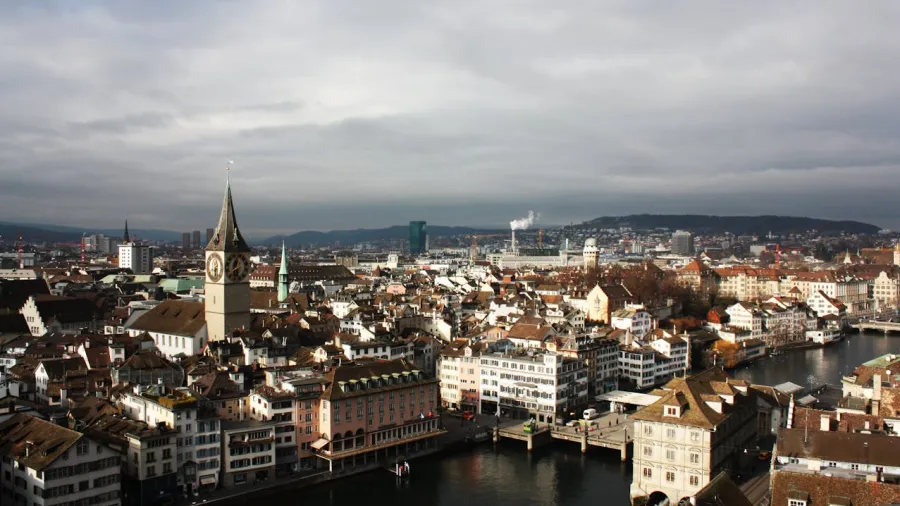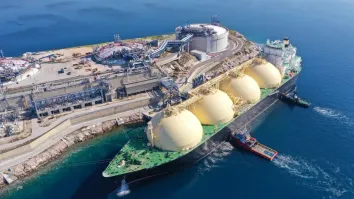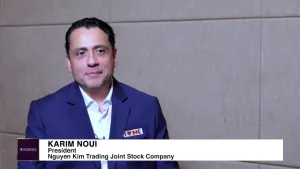
From alps to algorithms: Why Asia must wake up to Switzerland’s Deep Tech Surge
By Renee KohDespite its modest size, Switzerland punches far above its weight in the deep tech arena.
In the global race for deep tech dominance, a quiet revolution is unfolding in the heart of Europe. Switzerland, better known for its pristine landscapes, precision watches and discreet banking. As a matter of fact, the alpine is rapidly emerging as a magnet for elite deep tech talent.
From artificial intelligence (AI) to quantum computing, robotics to green energy, Switzerland is no longer just keeping pace. It is setting the pace forward.
For Asian market players, the message is clear: Look beyond traditional hot spots in scientific and engineering industries. The next frontier of foundational technology is being shaped in Zurich and Lausanne, and the time to engage is now.
Deep tech talent: The new strategic asset
In today’s business landscape, deep tech talent is no longer a niche concern, it is more of a strategic imperative. Foundational technologies like AI, quantum computing, and autonomous systems are still in their infancy, and the race to recruit the minds capable of building them is intensifying.
Leading experts say that there may be only 2,000 individuals globally with the expertise to develop and deploy foundational models. That’s not just scarcity, but a bottleneck.
This scarcity is driving fierce competition. In August, Apple lost a dozen AI staff, just months after poaching talent from Google’s Zurich-based operations. Microsoft has quietly recruited over 20 AI experts from DeepMind. OpenAI, not to be outdone, has opened a Zurich office after luring away three chief engineers from DeepMind’s Swiss subsidiary.
The race to tap talent for innovation is evident from the just-released 2025 report by the World Intellectual Property Organization. Switzerland, which has topped the index for 15 consecutive years, showed that it continued to lead in high R&D intensity, world-class institutions, a strong educational system and a strongly innovative private sector. These are hallmarks of talent as a national strategic asset.
These movements aren’t random as they are more tectonic. They reveal a deep undercurrent of strategic repositioning, with Switzerland at the epicentre.
Switzerland’s quiet power play
Despite its modest size, Switzerland punches far above its weight in the deep tech arena. The country’s rise is powered by a potent mix of academic excellence, international investment and forward-thinking government policy.
Academic firepower: ETH Zurich and EPFL are amongst Europe’s top five institutions for deep tech spinouts. Their graduates are shaping the future of AI, robotics, biotech and quantum computing.
Venture capital surge: Deep tech now absorbs 60% of all Swiss VC funding — the highest national share worldwide. In 2025 alone, investment reached $23b, a sixfold increase over the past decade.
Global magnetism: Tech giants like Google, Meta, Sony, Microsoft, Nvidia, OpenAI, Anthropic, Baidu, TikTok, and Pinterest have expanded in Zurich and Lausanne, drawn by the talent pool and innovation ecosystem.
Sector diversity: Switzerland’s startup landscape has evolved beyond biotech. Since 2021, AI/ML accounts for 23% of new companies, with strong growth in climate tech, robotics and green energy.
Government backing: Agencies like Innosuisse offer funding, incubation and tech transfer programmes that accelerate deep tech ventures from lab to market.
Cost advantage: Swiss AI and blockchain professionals cost up to 26% less than other top tech hotspots, offering global firms a compelling value proposition.
Labour flexibility: Switzerland boasts one of Europe’s most employer-friendly labour markets, enabling companies to scale quickly and adapt to shifting demands.
In short, Switzerland isn’t just participating in the deep tech revolution. The country is architecting it.
Can Asia afford to look away?
For Asian businesses, investors, and policymakers, Switzerland’s ascent presents both a challenge and an opportunity. The challenge lies in recalibrating assumptions: Deep tech leadership is no longer confined to traditional powerhouses.
The opportunity lies in engagement — strategic partnerships, talent exchanges and investment flows that tap into Switzerland’s innovation engine.
Asia’s deep tech ambitions are vast, from Singapore’s AI governance frameworks to Japan’s robotics leadership and India’s quantum computing initiatives. But without access to elite talent and proven ecosystems, ambition risks becoming abstraction.
Switzerland offers a bridge. Its institutions are open, its talent pool is global, and its innovation infrastructure is built for collaboration. The Swiss Business Hub Southeast Asia + Pacific stands ready to connect Asian players to this ecosystem — whether through talent acquisition, R&D partnerships, or venture scaling.
The deep tech race is not just about technology — it’s about timing. Foundational models, quantum breakthroughs, and autonomous systems are being shaped now, by a handful of minds in a handful of places. Switzerland is one of those places.
Asian market players must act decisively. Engage with Swiss universities. Explore joint ventures with Swiss startups. Leverage government-backed programmes like Innosuisse. And above all, recognise that the future of deep tech may be written not in the glass towers of Silicon Valley, but in the labs nestled between the Alps.
The talent is there. The infrastructure is ready. The question is — will Asia show up?




















 Advertise
Advertise









